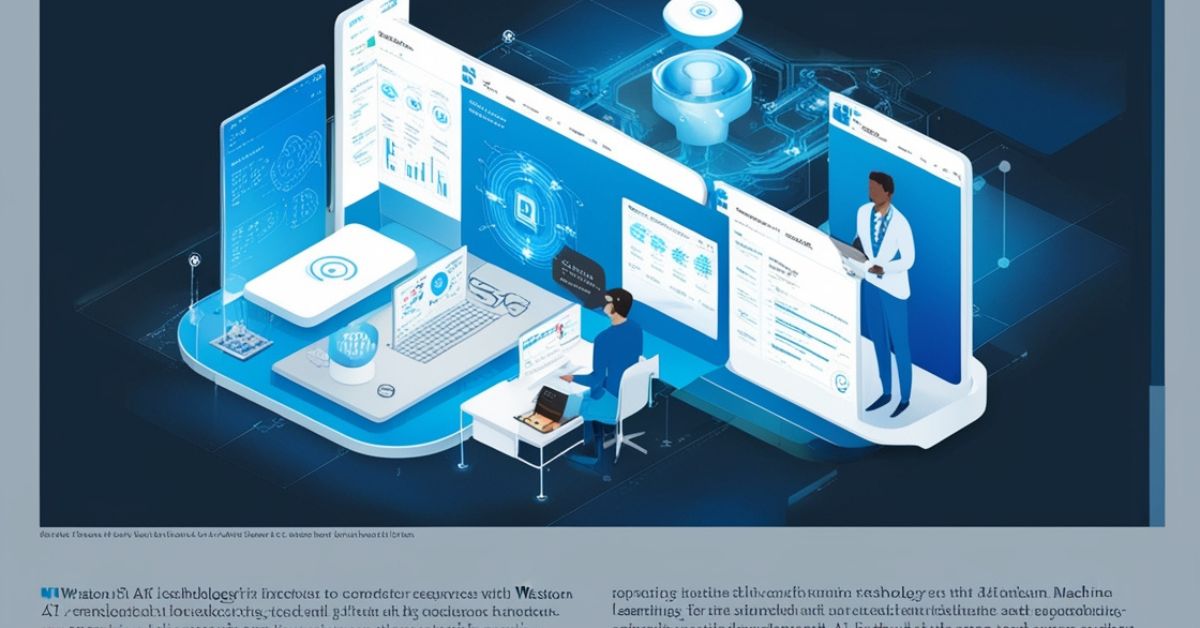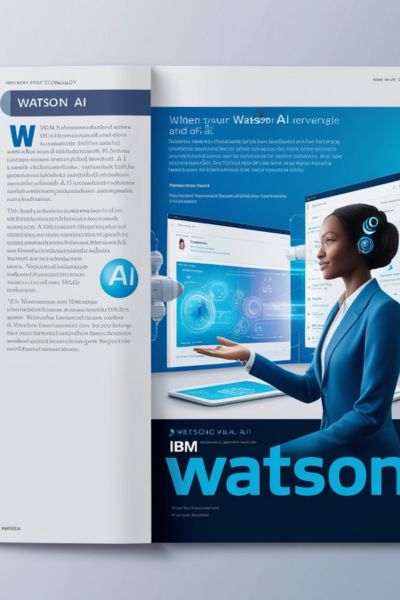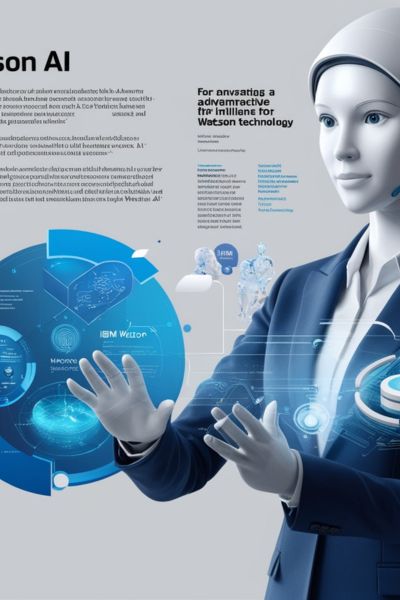|
Future of Watson AI Related Blog |
|
1.AI Ethics & Watson AI |
|
2.Cognitive Services with Watson AI |
|
3.Natural Language Processing (NLP) with Watson AI |
|
4.Machine Learning with Watson AI |
|
5.IBM Watson AI |
|
6.Watson AI |
Transforming the Future of Artificial Intelligence
Introduction: Why Watson AI Matters
Artificial Intelligence (AI) is reshaping industries, driving innovation, and creating solutions to challenges we once thought impossible. Among the leaders in this transformative wave is Watson AI, IBM’s flagship AI system that continues to revolutionize the way businesses and individuals interact with data. Watson AI isn’t just about automation; it’s about understanding, learning, and applying knowledge to solve real-world problems. From healthcare diagnostics to financial forecasting, Watson AI showcases the incredible potential of AI to redefine what’s possible.
In this blog, we’ll explore what Watson AI is, its standout features, real-world applications, and how it helps businesses thrive in a data-driven world. Let’s delve into the core of Watson AI and uncover its value in modern industries.
What Is Watson AI?
Watson AI, developed by IBM, is an advanced artificial intelligence platform that combines machine learning, natural language processing (NLP), and data analytics to provide insights, automate processes, and improve decision-making. Launched in 2011, Watson gained fame after defeating human champions on the quiz show Jeopardy!, showcasing its ability to understand and respond to complex questions.
What makes Watson AI unique is its ability to process vast amounts of unstructured data—like text, images, and speech—and convert it into actionable insights. It’s not just a tool but a cognitive system designed to understand human language, interact naturally, and learn over time.
Key Features of Watson AI
1. Natural Language Processing (NLP)
Watson excels in understanding and processing human language. It can analyze documents, emails, and other text-based data to extract meaning, identify sentiment, and even provide context-based recommendations.
2. Machine Learning and Adaptability
Watson AI is powered by machine learning models that improve over time. By analyzing patterns in data, it gets smarter with each interaction, ensuring consistent and accurate outputs.
3. Industry-Specific Customization
Watson offers tailored solutions for various industries, including healthcare, finance, retail, and customer service. Its flexibility ensures businesses can adapt the tool to meet their unique needs.
4. Scalable Cloud Integration
Watson AI operates on IBM Cloud, allowing businesses to scale as needed. This ensures that organizations of all sizes can benefit from its powerful capabilities without worrying about infrastructure limitations.
5. Multimodal Data Processing
Watson AI can process structured and unstructured data, such as text, images, and audio, enabling it to provide comprehensive insights and solutions across different data types.
Real-World Applications of Watson AI
1. Healthcare Innovation
In healthcare, Watson AI is used to assist doctors in diagnosing diseases, recommending treatments, and analyzing medical research. For example, Watson for Oncology helps oncologists identify evidence-based cancer treatment options, enhancing patient care.
2. Customer Service Transformation
Watson AI powers virtual agents and chatbots that provide 24/7 customer support. These AI systems can handle queries, offer solutions, and escalate complex issues to human agents when necessary, improving customer satisfaction and reducing operational costs.
3. Financial Services
Banks and financial institutions use Watson AI to analyze market trends, assess risks, and detect fraudulent activities. By processing real-time data, Watson helps businesses make informed financial decisions.
4. Retail Personalization
Retailers leverage Watson AI to analyze customer behavior, recommend products, and optimize supply chain operations. Its ability to predict consumer trends makes it an invaluable tool for boosting sales and enhancing customer experiences.
5. Research and Development
Researchers use Watson AI to analyze scientific papers, identify patterns, and accelerate the discovery process in fields like drug development and environmental science.
How Watson AI Works
Watson AI works by combining advanced AI technologies to deliver meaningful outcomes:
- Data Ingestion: Watson collects data from multiple sources, including text, audio, and visual data.
- Data Processing: Using NLP and machine learning, Watson processes the data, identifying patterns, insights, and predictions.
- Interaction: Through APIs and cloud services, Watson interacts with users and systems, providing insights and recommendations in real-time.
- Learning and Improvement: Watson continuously learns from new data, improving its models and enhancing accuracy.
Benefits of Watson AI
- Enhanced Decision-Making: By analyzing vast datasets, Watson provides insights that improve decision-making across industries.
- Cost Savings: Automating processes and reducing manual labor save businesses time and money.
- Improved Accuracy: Watson minimizes errors by relying on data-driven insights rather than assumptions.
- Scalability: Its cloud-based infrastructure allows businesses to grow without worrying about technical limitations.
Challenges and Considerations
While Watson AI offers immense potential, it’s important to consider:
- Cost of Implementation: Advanced AI tools like Watson may require significant investment, particularly for small businesses.
- Data Privacy: Organizations must ensure data security and compliance with privacy regulations.
- Learning Curve: Implementing Watson AI may require specialized knowledge and training for staff.
Conclusion: Embracing Watson AI for a Smarter Future
Watson AI is more than just an artificial intelligence platform—it’s a gateway to innovation and efficiency. Its ability to process complex data, automate processes, and deliver actionable insights makes it a game-changer for businesses and industries worldwide.
Whether you’re a healthcare provider looking to enhance patient care, a retailer aiming to personalize customer experiences, or a financial institution seeking better risk management, Watson AI has the tools to help you succeed.
As we move forward, the integration of AI in daily operations will become indispensable. Watson AI not only prepares businesses for the future but empowers them to lead the charge. Are you ready to harness the power of AI for your organization? Let Watson AI be your partner in innovation.
Top 10 FAQs About Watson AI
-
What is Watson AI?
Watson AI is IBM’s artificial intelligence platform that uses advanced machine learning, natural language processing, and data analytics to provide intelligent solutions for businesses across industries. It helps in understanding, reasoning, learning, and interacting in human-like ways. -
How does Watson AI work?
Watson AI works by processing large amounts of structured and unstructured data. Using machine learning algorithms and natural language processing, it identifies patterns, generates insights, and provides solutions to complex problems. -
What industries can benefit from Watson AI?
Watson AI is versatile and benefits industries such as healthcare (for diagnostics and patient care), finance (for fraud detection and risk analysis), retail (for personalized recommendations), and customer service (via AI-powered chatbots). -
What makes Watson AI different from other AI platforms?
Watson AI stands out due to its ability to process unstructured data, integrate seamlessly with business workflows, and provide actionable insights through natural language understanding. Its scalability and robust security features also make it a reliable choice. -
Can Watson AI be customized for specific business needs?
Yes, Watson AI is highly customizable. It can be tailored to meet the unique requirements of different industries, making it an adaptable solution for businesses of all sizes.




0 Comments